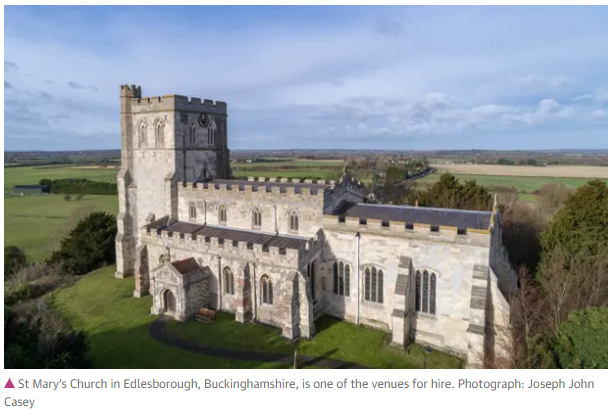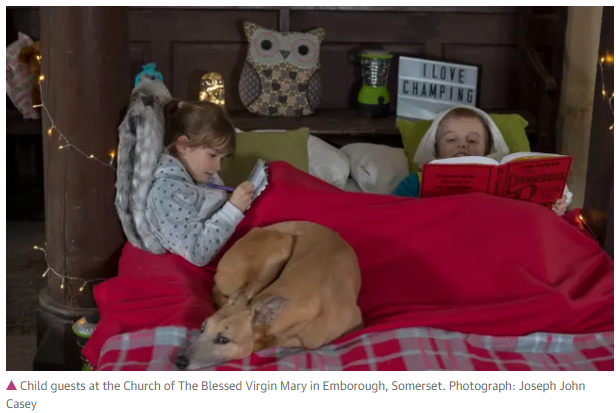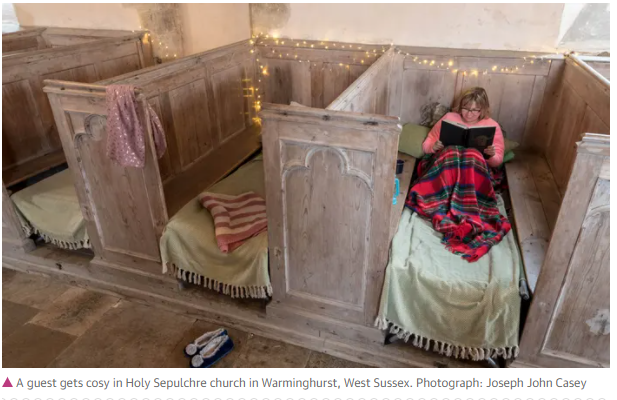By Jeph Ajobaju, Chief Copy Editor
Church attendance is huge in Africa and South America, both continents in the Universal South, and record congregations are also trooping out for Sunday worship in the Far East, particularly in South Korea.
In Buddhist South Korea, Christians have grown in number in the past 10 years to about 15.6 million, 30 per cent of the 52 million population. Yoido Full Gospel Church in Seoul packs 480,000 in weekly attendance, the largest in the world, according to Wikipedia.
Evangelical Cathedral of Chile based in Santiago congregates 150,000 weekly and Igreja Batista da Lagoinha in Belo Horizonte, Brazil records 50,000.
Nigeria has the most megachurches in the world, and they get nearly 90 per cent attendance every week. Christians number around 96 million or about 48 per cent of the entire population of 200 million.
Living Faith Church, also called Winners’ Chapel, in Ota, Ogun State holds four services on Sunday, each attended by 50,000 people, a total 200,000.
Deeper Life Bible Church has more than one million members in Nigeria, with 100,000 attending the headquarters church in Gbagada, Lagos for Sunday worship.
The Redeemed Christian Church of God (RCCG) is by far the largest with about five million members. The prayer ground at Redeem Camp on the Lagos-Ibadan Express Way is three square kilometres.
One million worshippers congregate for worship there at the monthly service, and extensive renovation is going on to accommodate three million.
But in the Universal North, from where Christianity spread from Spain to the rest of the world, Christianity is on the wane among a populace that relies on physical wellbeing to the neglect of spiritual nourishment.
Some 41 per cent of the United States population is Christian even though the country was developed with the influx of Europeans who fled religious persecution in Europe to establish and grow Christianity in the New World.
The percentage of Christians has shrunk to a mere 11 per cent in the United Kingdom, a country through which God used men to collect several Bible translations into one unique King James Version in 1611.
The UK has since degenerated into moral turpitude, capped with legalisation of same sex marriage in 2014 and no fault divorce in 2020, to be implemented from 2022.
The British Parliament made these law on the back of low Church attendance for prayer, Bible study, and to worship God.
Camping in church is growing in the UK, but for a different reason, as reported below by The Guardian (UK).
A record year of UK staycation boom
Penny Thomas has always favoured adventure holidays over lying on a beach. But this year, with UK destinations in such demand during the pandemic, she found a unique way to avoid the crowds.
Rather than staying in a busy campsite, or trying to get a rare available holiday home, Thomas, her partner Pete Matthews and labradoodle Betty checked into a 13th-century church.
“It was the appeal of doing something a little bit different … I hate being disturbed by other people’s noise. You don’t get that when you’re sleeping among the dead,” she says, laughing.
The couple, from Warwickshire, are among record numbers of British holidaymakers who have gone “champing” – camping in churches – this year.
The Airbnb-style service for redundant churches, which was started six years ago to bring new people into the empty buildings and help fund their upkeep, is usually very popular with international visitors.
But, with coronavirus travel restrictions in place and huge demand for UK-based staycations, Champing, the official name of the Churches Conservation Trust (CCT) initiative, is on track to record its highest number of domestic visitors to date this season, which runs from April to October.

There are 14 CCT churches taking part across England, including in Essex, Norfolk, Lancashire and Somerset.
Visitors pay between £49 and £59 per adult per night to sleep in campbeds surrounded by monuments, gravestones, stained glass windows, an altar and all the usual fixtures of a consecrated Church of England church.
They also come with their own wildlife – some of the churches have bats.
Only one group stays at a time
Regardless of the building’s size, only one group stays at any one time and guests are given the key to the church.
“They’re great value for money – even a little country church, when there’s two of you in it, it’s a massive space,” says Thomas, 51, who has been champing twice.
The first time Thomas and Matthews, who are both packaging designers, stayed at St Peter’s, a 14th-century church in Wolfhampcote, Warwickshire. The second time they went to St Cuthbert’s church in Holme Lacy, Herefordshire.
“We’re both staunch atheists but I love ancient buildings; I’ve got a bit of a passion for them,” says Thomas. “And also there’s the atmosphere in any church. I think, even as an atheist, there’s an atmosphere.”
A lot of her friends have asked if it felt spooky. The first time, they watched a horror film and “tried to spook ourselves”, but they enjoyed a “really peaceful” stay on the second occasion.
Fiona Silk, business development officer for Champing, says that so far this year they have had around 1,350 champers, and 6,500 since they started in 2015.

Pre-pandemic it was especially popular with Americans who, she says, “love the historical aspect”, but this year it has attracted mainly British staycationers across the generations.
“People are wanting to come and find a new place, a new perspective close to home, and they’re discovering places on their doorstep which they might not have known about previously.”
Sleeping in churches enables people to experience them in completely new ways than they would during a service or wedding or funeral, she says.
“They’re having that experience of those solid walls, that ancient door, those beautiful stained glass windows around you that have that light coming in in the morning. And they’re getting that sense of solace or peace.
“They’re getting something from it that would be unique to everybody.”
Not spiritual, at all
It also appeals on multiple levels – from trainee vicars looking for a place to reflect to people looking through the lens of social media. “A lot of people just want to come to somewhere that’s unique, as it will look great on their Instagram.
“They might have done the tipi experience or the shepherd’s hut, and now they’re trying the church … So it’s not necessarily spiritual at all, and obviously people do not have to be religious,” says Silk.
Guests are provided with campchairs, tea and coffee, campbeds, water, a kettle, battery-powered candles, lanterns and fairylights and access to a toilet – but no shower. Guests are allowed to drink in the church and some have parties.
Lynda Dale regularly hosts overnight guests at St Mary the Virgin in Stansted Mountfitchet in Essex, which has been redundant for over 30 years. She says champing is a great way to bring in younger people to the church and helps to put the building “on the map”.
Initially, there were some issues raised by the local community about installing a toilet in the church, but now they have embraced it.
Dale is the keyholder and chair of the Friends group at the medieval church, parts of which date back to the Norman Conquest.
“Not many people can have a nearly 1,000-year-old church for their hotel room, among all the monuments and history,” she added.














